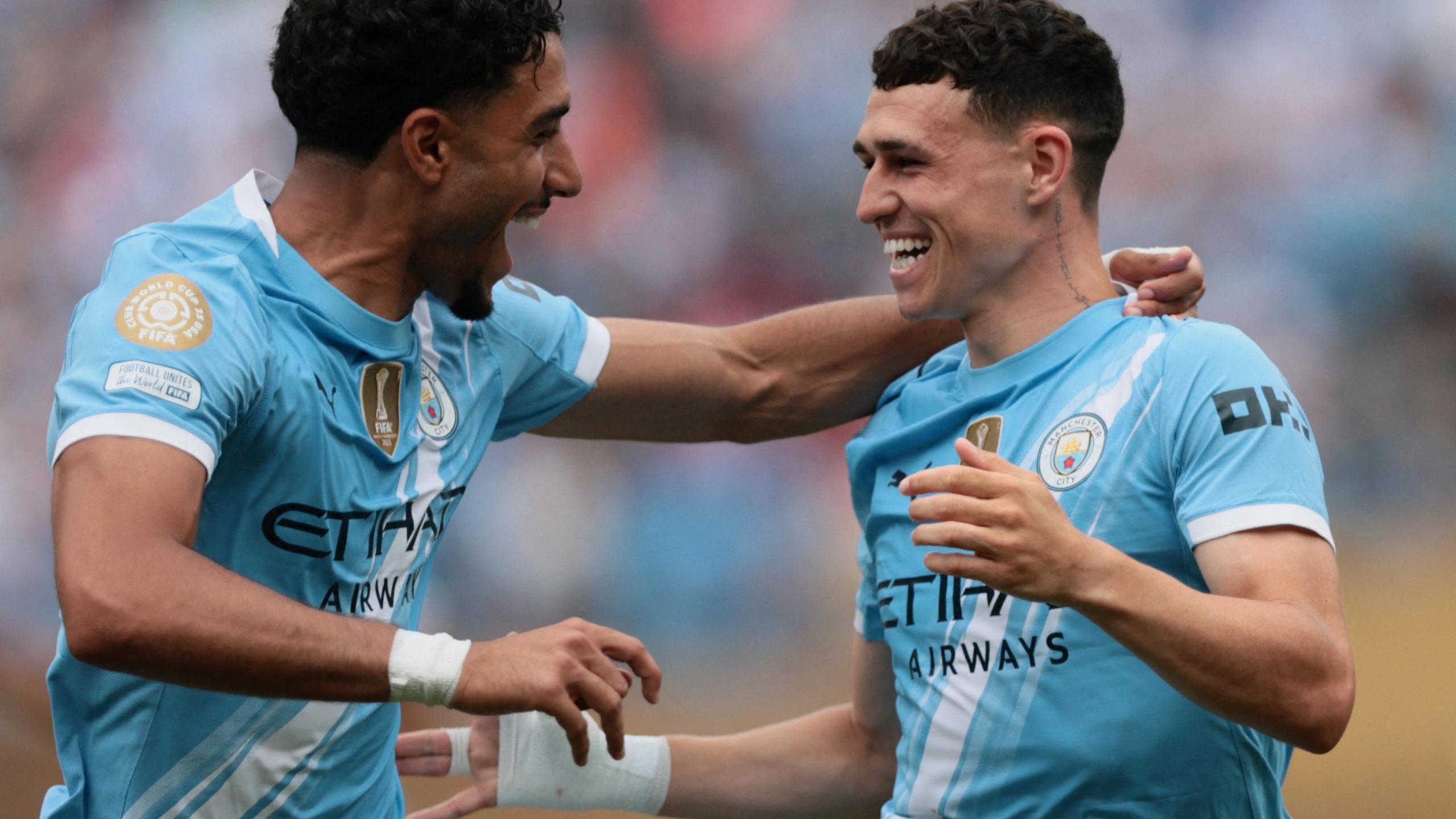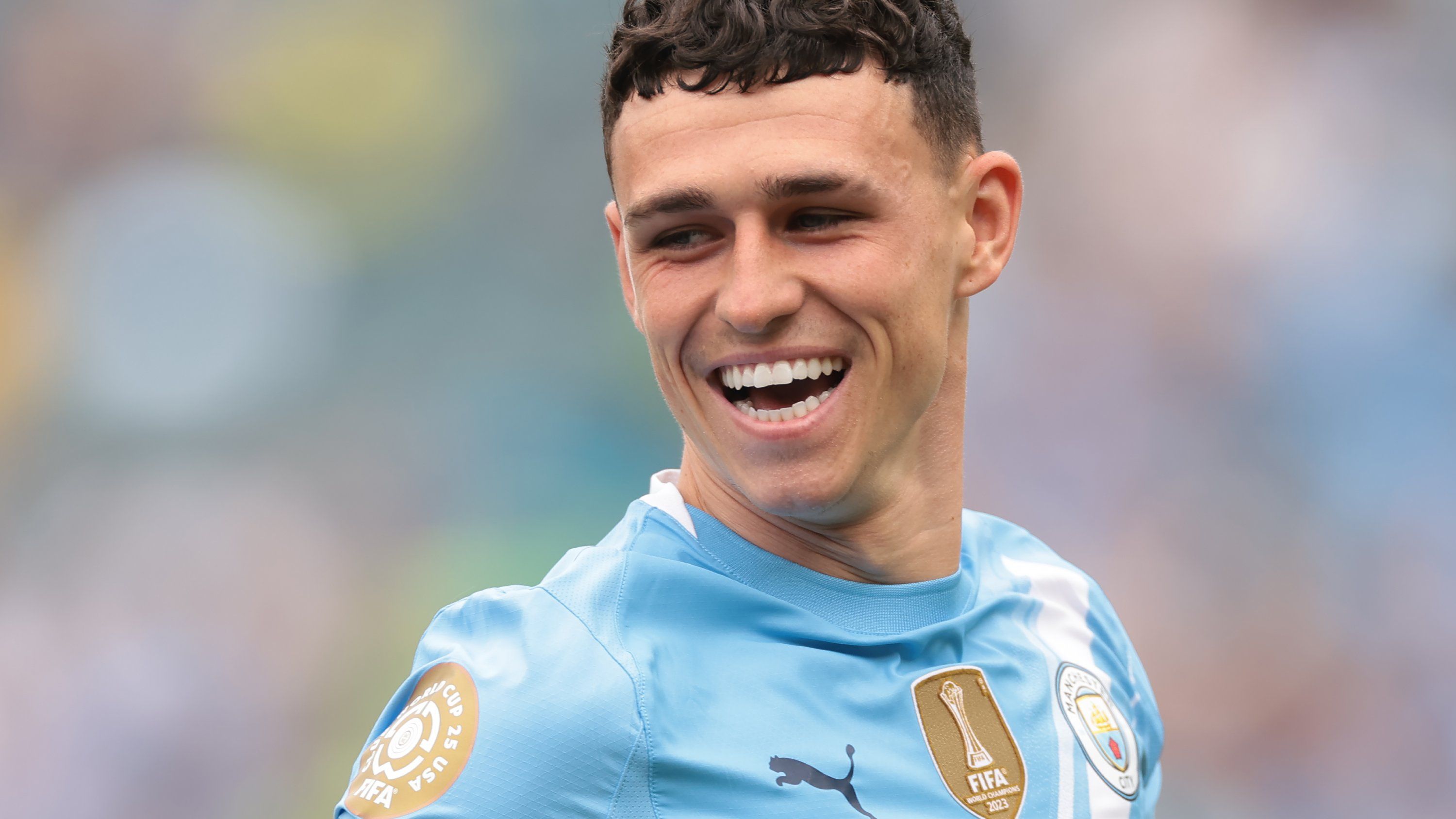As Manchester City began their FIFA Club World Cup campaign in the heat of Philadelphia, it was Phil Foden—one of their most familiar faces—who shone brightest. After a turbulent season marred by injury and inconsistency, the England international reminded fans of his world-class talent, helping City to a 2-0 win over Wydad AC with a goal and an assist. In what marks the beginning of the post-Kevin De Bruyne era, Foden’s rejuvenation could be City’s most valuable asset.
Foden rises from the rough
There’s something poetic about Phil Foden leading Manchester City’s charge in the opening match of the revamped Club World Cup. The midfielder, who struggled for form and fitness last season, wasted no time announcing his return with a second-minute strike and a slick assist for Jeremy Doku. The Lincoln Financial Field basked in sunlight, but it was Foden who brought the real brightness to the pitch.
Speaking after the match, Foden described the moment as a reset: “A new season, fresh me.” His words echoed with quiet determination, hinting at a player eager to leave behind a frustrating chapter. In the previous Premier League campaign, he managed only seven goals—an underwhelming tally by his standards—and later revealed he had been playing through an ankle injury. Add to that the psychological toll of a trophyless season for City, and it’s easy to understand why he considered skipping this competition to rest. But on Wednesday’s evidence, that decision to stay and play looks inspired.

In what could be the beginning of a breakout campaign, Foden’s energy and confidence were evident. He found pockets of space outside the box, dictated tempo, and remained constantly involved. His opener, the fastest goal of the tournament so far, was a moment of calm in a crowded box: a composed touch, followed by a precise shot into the far corner. With 54 touches before being substituted in the 60th minute, Foden not only dictated play—he led it.
Life after De Bruyne
With Kevin De Bruyne now officially a Napoli player, a huge creative void looms in City’s midfield. For nearly a decade, the Belgian’s vision, passing, and leadership were the beating heart of Guardiola’s team. Replacing him is no small task. But in Foden, Guardiola may have found not just a temporary fix, but a natural evolution.
Foden’s performance against Wydad Casablanca showed signs of a player ready to take on more responsibility. From orchestrating attacks to linking play between lines, he flourished in a freer, more central role. The change isn’t just tactical—it’s symbolic. For years, Foden was the apprentice, a local boy learning in the shadows of giants. Now, he’s stepping into their shoes.
His contributions weren’t just statistical. He played with the kind of rhythm and spatial intelligence that De Bruyne made his signature. If Foden can maintain this consistency and grow into the role further, the transition from one era to the next may not be as bumpy as some feared. Guardiola’s words—“really good”—might seem understated, but for a manager who often guards his praise, they are telling.
Midfield reinforcements bring fresh energy
While Foden grabbed the headlines, two new signings quietly made encouraging starts to their City careers. Dutch midfielder Tijjani Reijnders and French forward Rayan Cherki were handed debuts, with both showing glimpses of their potential in what Guardiola called “tough conditions.”
Reijnders, signed as part of a £100m summer revamp, lived up to his billing as a box-to-box midfielder. In a side that struggled last season without Rodri, Reijnders offered dynamism, pressing high, winning duels, and driving play forward. His balance of athleticism and technique may be exactly what City’s midfield lacked during their more stagnant moments last term. “You feel and smell it, a really good player,” Guardiola said post-match, highlighting the Dutchman’s ability to influence the final third as well as control deeper areas. For a City side known for its positional play and midfield orchestration, Reijnders looks like a natural fit.
Cherki, on the other hand, was more mercurial. The 21-year-old showcased flashes of brilliance—quick feet, creative flair—but lacked the sustained control that Reijnders displayed. His performance suggested he might be an impact player rather than a metronome, someone capable of producing moments rather than managing matches.
Guardiola’s evolving puzzle

The Club World Cup, often viewed as a pre-season in disguise, has taken on added significance for Guardiola’s side. Not only is it a chance to lift silverware early, but it also serves as a proving ground for new combinations, tactics, and leadership dynamics.
The absence of Kevin De Bruyne, the integration of expensive new talent, and the burden of recovering from a trophyless campaign have all shaped City’s mindset. But Wednesday’s win offered more than just three points—it offered clarity. Foden appears ready to be the team’s creative focal point. Reijnders could be the all-action midfielder they were missing. And despite a late red card for Rico Lewis, there is reason for early-season optimism.
The Spanish manager has always thrived on reinvention. And with this mix of homegrown brilliance and high-profile newcomers, he’s already sketching the next iteration of his all-conquering City side. The path won’t be without hurdles, but the early signs—from Philadelphia, of all places—are promising.
Final word: Philly’s promise
As the sun set over Lincoln Financial Field, City’s fans may have felt more than relief—they felt excitement. Phil Foden’s form, Reijnders’ energy, and Cherki’s spark represent more than just isolated positives. They suggest a team turning the page and beginning a new narrative.
City’s next steps in the tournament will reveal more about this group’s chemistry and resilience. But if “new season, fresh me” becomes more than just a post-match quote—if it becomes a mantra for Foden and City alike—then the rest of the footballing world should take notice. The sky-blue machine is recalibrating. And its local talisman may just be the key to its next great chapter.




